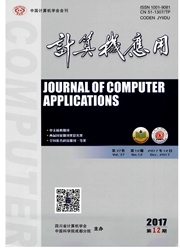

 中文摘要:
中文摘要:
针对现有信任评估方法缺乏对消费者风险态度的考虑,提出了一种基于消费者风险态度的主观信任模型。首先,利用集值统计理论计算属性集成区间;其次,引入风险态度因子,将区间评价矩阵转化为带风险态度信息的评价矩阵;最后利用相对接近度的思想得到实体的信任水平。通过仿真实验表明,当消费者处于不同风险态度时,可以通过调整其风险态度因子来评估服务提供者的信任水平;通过防欺诈实验,进一步验证了该模型能够有效地遏制一般恶意节点的攻击行为。且发现在诋毁行为攻击时,风险态度较乐观者,误差较小;在夸大行为攻击时,风险态度较谨慎者,误差较小。
 英文摘要:
英文摘要:
Aiming at the problem that the existing evaluation methods do not take into account consumers' risk attitude, a subjective trust model based on consumers' risk attitude was proposed. Firstly, the historical information of entity evaluation attributes was converted into the interval number by using set-valued statistics theory. Then, by introducing risk attitude factor, the interval evaluation matrix was transformed into the evaluation matrix with risk attitude. Subsequently, the trust level of the entity was calculated by using the idea of relative closeness. Finally, the simulation results verify that the proposed method can make better trust decisions by considering risk attitude of consumers. The simulating experiment of anti-fraud further confirms the feasibility of the subjective trust model.
 同期刊论文项目
同期刊论文项目
 同项目期刊论文
同项目期刊论文
 期刊信息
期刊信息
